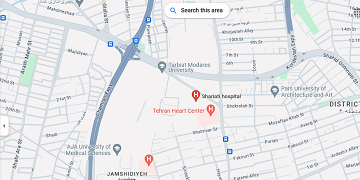Investigating plasma and brain changes of inflammatory factors and mir-146 and mir-155 biomarkers following treatment with umbilical cord-derived mesenchymal stem cell exosomes in Alzheimers model in rats
Summary of the necessity of project implementation
Alzheimer's disease (AD) is an age-related neurodegenerative disease that is one of the most important public health challenges worldwide. Alzheimer's disease is characterized by the accumulation of β-amyloid peptide (Aβ) and hyperphosphorylated tau protein (p-tau) in the brain, leading to loss of synapses and eventual neuronal death. Clinically, AD is characterized by progressive cognitive decline, including loss of memory and higher executive functions. Among the mechanisms that cause Alzheimer's, inflammation is known as one of the key and effective factors in the pathophysiology of Alzheimer's disease (AD). Chronic and non-specific activation of microglia by Aβ plaques is a common pathological feature of Alzheimer's disease, which in turn can lead to increased NF-kB signaling pathway and increased expression of pro-inflammatory mediators such as IL6, IL1β and TNF-α. Recent research has shown that miRNAs play a critical role in regulating inflammatory signaling pathways in neurodegenerative diseases. Meanwhile, miR-146 and miR-155, as two key microRNAs, can affect the response of inflammatory activity in this disease through the effect on the NF-kB signaling pathway, and as the main factors in controlling inflammation in Alzheimer's disease, as well as biomarkers for diagnosis and rate Disease progression should be considered and investigated. Despite a wealth of evidence on the etiology of AD, there is currently no effective treatment for AD. Although currently there are drug treatments such as antidepressants, cholinesterase inhibitors, etc. to reduce the severity of Alzheimer's symptoms. But in most patients, it only leads to limited control of symptoms and includes serious side effects such as cardiac arrhythmia, electrolyte changes, blood pressure, etc. Therefore, due to the ineffectiveness of current treatments, the need for new and more effective methods to control and treat Alzheimer's seems necessary. Studies show that mesenchymal stem cells (MSC) can have significant therapeutic effects in Alzheimer's disease models through various mechanisms such as reducing inflammation, reducing the accumulation of amyloid-beta plaques and protecting neurons against oxidative stress. It has been reported that MSCs play an important role in the function of microglia, which leads to an increase in the level of anti-inflammatory cytokines such as IL-4 and IL-10 and a decrease in the level of pro-inflammatory cytokines such as IL-1β and TNF-α. Also, MSCs can degrade Aβ deposits in AD-like models, leading to improved memory and cognitive function, making them a possible new approach for AD treatment. Despite the positive results of using stem cells in improving neurodegenerative diseases, cell transplantation has always faced problems such as immune incompatibility, tumorigenicity of cells, the possibility of xenozoic infections, low number of cells for transplantation, or death of transplanted cells. Therefore, direct use of stem cells reduces the efficiency of cell-based treatment and this is one of the main limitations in such treatments. As a result, for the safety of cell-based treatments, it is necessary to use alternative methods instead of direct stem cell transplantation. Recent studies have shown that the use of Conditioned Medium (CM) of stem cells instead of direct stem cell transplantation is a practical method that overcomes the current limitations of cell-based therapies. Many cytokines and growth factors are present in the CM of different stem cells, which could be responsible for the paracrine protective effects of stem cells against cytotoxic injury. Studies have reported the use of stem cell CM for neuroregenerative therapies. Since in recent years, the study of exosomes in CM has attracted a lot of attention, especially in the field of treating neurodegenerative diseases, due to reasons such as high potential, low cost, and less stimulation of the immune response compared to the direct use of stem cells. has done, the use of exosomes derived from mesenchymal stem cells is suitable and cheap as a treatment or adjuvant treatment method. Studies have shown that MSC exosomes play an important role in reducing inflammation and improving the condition of neurodegenerative diseases such as Alzheimer's due to their ability to transport bioactive substances, regulate inflammatory responses and protect neurons. Also, due to higher safety, better stability, reduced risks associated with cell injection and stability in storage and transfer, the use of exosomes has become an attractive option for the treatment of neurodegenerative diseases. In recent years, care and treatment guidelines recommend that non-pharmacological interventions be included in the agenda in addition to the pharmacological interventions needed in neurodegenerative diseases. Among the non-pharmacological interventions, physical activity has been a promising option in accelerating the recovery of neurodegenerative diseases, especially Alzheimer's. Recent studies show that physical and movement activity can significantly reduce the amount of amyloid beta in the brain by increasing the level of BDNF, reducing oxidative stress and reducing inflammatory factors. Therefore, physical activity is a potential intervention to maintain or improve cognitive performance and behaviors in Alzheimer's disease. Therefore, the current study aims to evaluate the therapeutic effect of exercise and exosome injection obtained from human umbilical cord mesenchymal stem cells (MSCs) on Alzheimer's recovery by measuring the amount of beta amyloid deposition in the brain as well as genes related to the main NF-kB inflammatory signaling pathway. IL-1β and IL-4 and their regulatory miRNAs, namely miR-146a and miR-155, as biomarkers for the diagnosis of disease progression in AD animal model.
Moderator: Dr. Maryam Farhamand Far
Start Year:2024




Send to friends